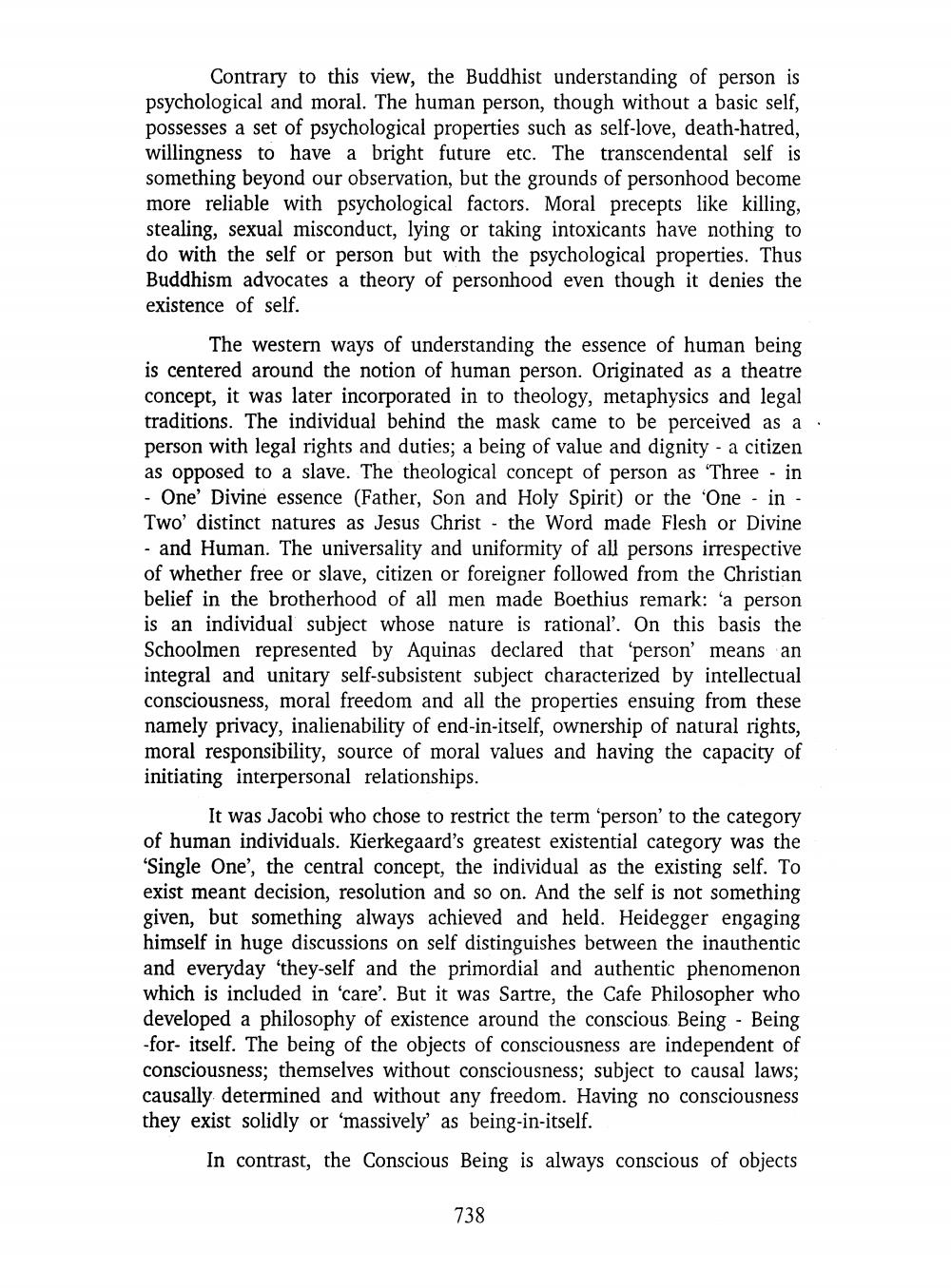________________
Contrary to this view, the Buddhist understanding of person is psychological and moral. The human person, though without a basic self, possesses a set of psychological properties such as self-love, death-hatred, willingness to have a bright future etc. The transcendental self is something beyond our observation, but the grounds of personhood become more reliable with psychological factors. Moral precepts like killing, stealing, sexual misconduct, lying or taking intoxicants have nothing to do with the self or person but with the psychological properties. Thus Buddhism advocates a theory of personhood even though it denies the existence of self.
The western ways of understanding the essence of human being is centered around the notion of human person. Originated as a theatre concept, it was later incorporated in to theology, metaphysics and legal traditions. The individual behind the mask came to be perceived as a person with legal rights and duties; a being of value and dignity - a citizen as opposed to a slave. The theological concept of person as 'Three - in - One Divine essence (Father, Son and Holy Spirit) or the One - inTwo' distinct natures as Jesus Christ - the Word made Flesh or Divine - and Human. The universality and uniformity of all persons irrespective of whether free or slave, citizen or foreigner followed from the Christian belief in the brotherhood of all men made Boethius remark: ‘a person is an individual subject whose nature is rational'. On this basis the Schoolmen represented by Aquinas declared that person' means an integral and unitary self-subsistent subject characterized by intellectual consciousness, moral freedom and all the properties ensuing from these namely privacy, inalienability of end-in-itself, ownership of natural rights, moral responsibility, source of moral values and having the capacity of initiating interpersonal relationships.
It was Jacobi who chose to restrict the term “person' to the category of human individuals. Kierkegaard's greatest existential category was the 'Single One', the central concept, the individual as the existing self. To exist meant decision, resolution and so on. And the self is not something given, but something always achieved and held. Heidegger engaging himself in huge discussions on self distinguishes between the inauthentic and everyday 'they-self and the primordial and authentic phenomenon which is included in 'care'. But it was Sartre, the Cafe Philosopher who developed a philosophy of existence around the conscious Being - Being -for- itself. The being of the objects of consciousness are independent of consciousness; themselves without consciousness; subject to causal laws; causally determined and without any freedom. Having no consciousness they exist solidly or 'massively as being-in-itself.
In contrast, the Conscious Being is always conscious of objects
738




